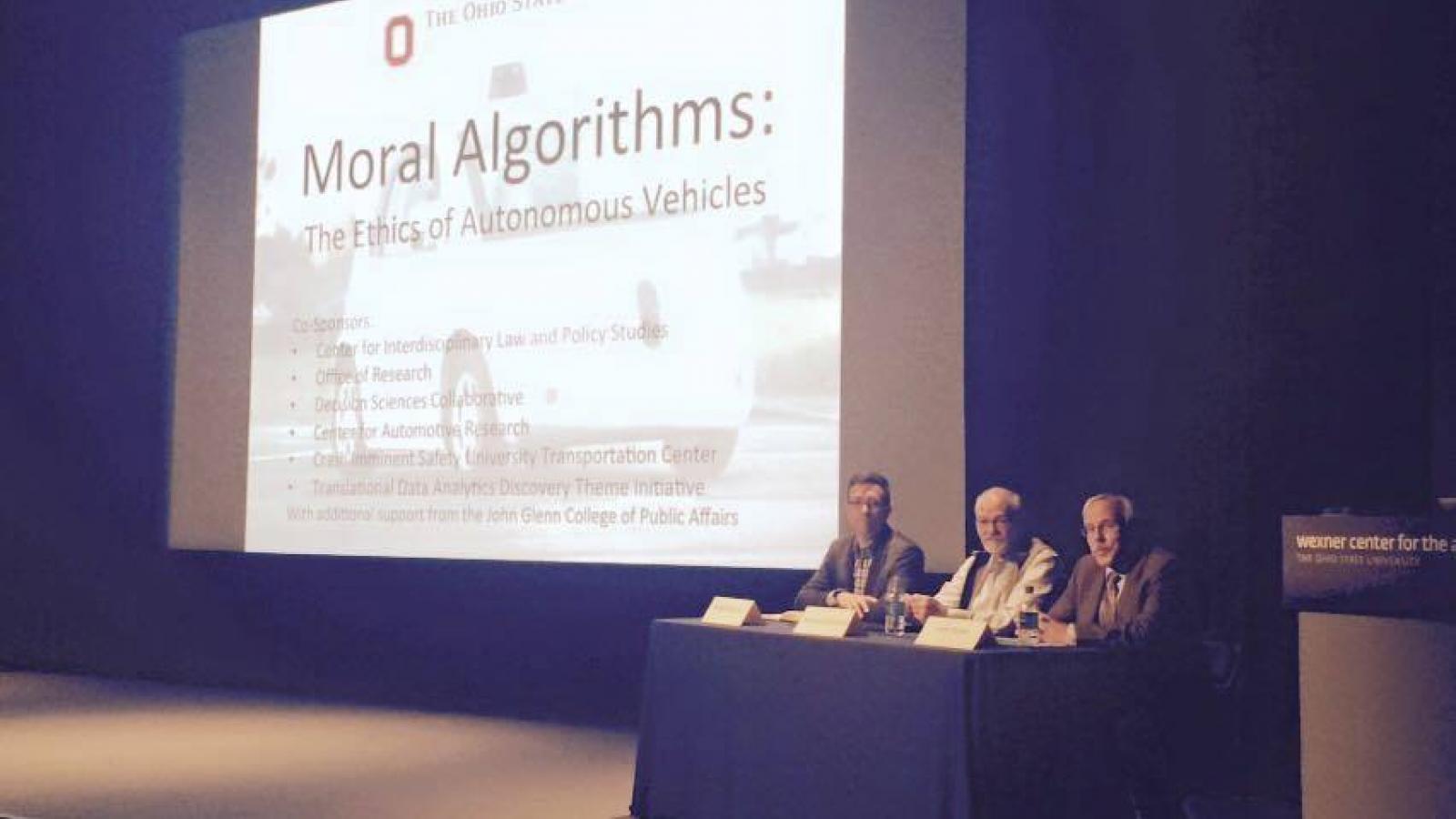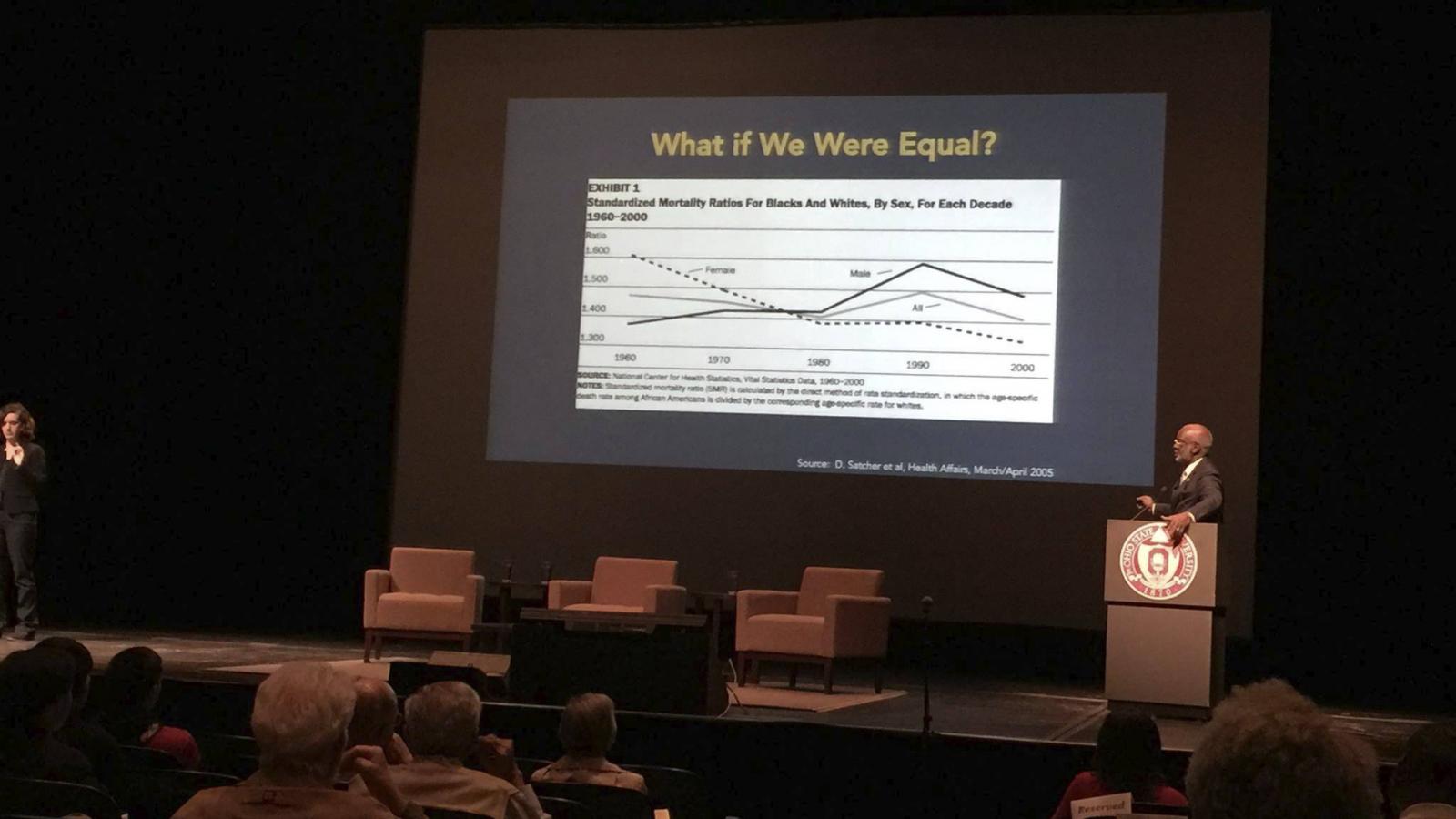The Now-Official Center for Ethics and Human Values
In previous editions of Logos, you might have read about the “Center for Ethics and Human Values” (CEHV), which encourages research and coordinates talks and workshops on ethics and public policy. This year, we are happy to report that on March 24, 2016, the University Senate voted unanimously to approve the establishment of the CEHV as a university center.
The interdisciplinary group behind CEHV has been led by two philosophers, Emeritus Professor Don Hubin (the center’s director) and Associate Professor Piers Turner. Other core faculty members include Eric MacGilvray and Michael Neblo from the Department of Political Science (both courtesy appointments in the philosophy department), Pamela Salsberry from the College of Public Health (who holds a PhD in philosophy) and Greg Hitzhusen from the School of Environment and Natural Resources.
In addition to its faculty leaders, philosophy graduate students have played a large role in organizing CEHV. This year, Lavender McKittrick-Sweitzer and Christa Johnson are acting as CEHV’s graduate administrative associates. In the past, Aly Massof, Brian McLean and former PhD student Ben Horne have held this role, all providing considerable work in organizing CEHV events.
CEHV’s designation as an official center was due largely to the success of its COMPAS (Conversations on Morality, Politics, and Society) program, a series of year-long interdisciplinary discussions on important public issues. With increased support from the Office of Academic Affairs and the Discovery Themes Initiative, CEHV is now able not only to continue its COMPAS program but also to expand in new directions. “We have been very fortunate to have had such a positive response so far,” says Piers. “We hope to keep working with groups in the community and across Ohio State to bring people together to think about and help solve complex social problems.”
Another major step forward for CEHV this year was the hiring of graduate alumnus Steven Brown (PhD 2012) as a full time associate director. Steven’s talent for outreach and public ethics has been highlighted before in Logos: in 2011 for co-developing and co-teaching a debate-style philosophy of religion class, and in 2013 for creating the non-profit organization, Maximin Project. Don says, “We are thrilled to have Steve on board. He will build our programming in innovative ways and help set us up institutionally for further development.” One of the department’s most popular instructors, Steven will continue to teach one course each semester.
Last year’s COMPAS program on sustainability brought leading authorities from diverse fields to Ohio State, including Andrew Light, a philosopher who acted as senior advisor to Secretary of State John Kerry at the Paris climate meetings. It also co-sponsored major talks by Cardinal Peter Turkson, who helped draft Pope Francis’ recent environmental encyclical, and the former Norwegian Prime Minister Gro Harlem Brundtland. To continue last year’s conversation, CEHV secured funding from Ohio State’s Office of Energy and the Environment for a two-year post-doctoral fellowship in the ethics of sustainable development. As a result, Corey Katz (PhD in philosophy from Saint Louis University), whose research focuses on climate change and human rights, has joined the department. This year, Corey will be teaching courses on applied ethics and organizing a spring conference on climate justice.
This year’s COMPAS program is on the theme of inequality. It started with a conference on “When Do Inequalities Matter?” (September 22-23), which featured a keynote lecture by Richard Wilkinson, the co-author of The Spirit Level. CEHV also co-sponsored a talk by the philosopher, social critic and New York Times columnist Kwame Anthony Appiah, titled, “Two Cheers for Equality,” as part of the President and Provost's Diversity Lecture and Cultural Arts Series. This winter, Piper Kerman, author of Orange is the New Black, will speak as part of the COMPAS program. On March 30 and 31, 2017, COMPAS’s conversation on inequality will continue with a conference focusing on global inequality. As is now customary, COMPAS also sponsored a photo contest related to the theme of its conference.
One new type of event this autumn was a “giving game” in which each attendee was awarded money to be given to a charity voted upon by the group. After learning about four different charities and debating the merits of each, the participants elected to donate to the charity GiveDirectly, which will now receive $310 as a result of the event.
In addition to the COMPAS events, CEHV organizes stand-alone talks and workshops with many departments, centers and educational programs at the university. Last spring, for example, with the support of a number of other units at Ohio State, CEHV produced a one-day conference on the ethics of autonomous vehicles (videos are still available online).
CEHV also is beginning to develop other regular programming this year. For example, it is sponsoring an annual ETHOS (“ETHics at Ohio State”) Address, at which a distinguished Ohio State faculty member will deliver a public lecture to the university community about the values that motivate them and the professional challenges they face. Reaching beyond campus, CEHV is introducing a distinguished lectureship to honor ethicists and political theorists who have made significant contributions, either within their fields or to the public understanding of ethical issues. The inaugural lecture in this series will be delivered in April 2017 by Nobel laureate economist and philosopher Amartya Sen.
According to Steven, the center is developing educational materials drawing upon his work at Maximin: “We are building a website that will helpfully display information about a wide variety of ethically significant metrics at the global scale. So this will be useful as an educational tool for nearly any project that involves global data.”
Another project is a faculty and staff fellowship and training program, called Ethics Circle, that will provide incentives and resources to Ohio State community members who wish to develop and reflect on the ethical aspects of their work.


